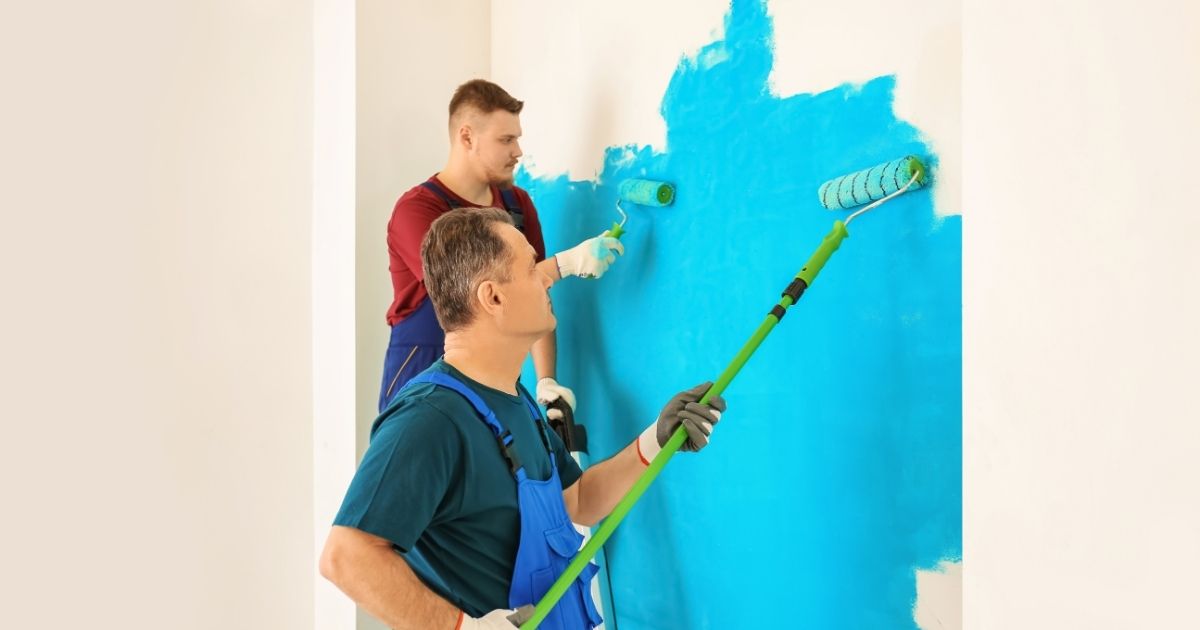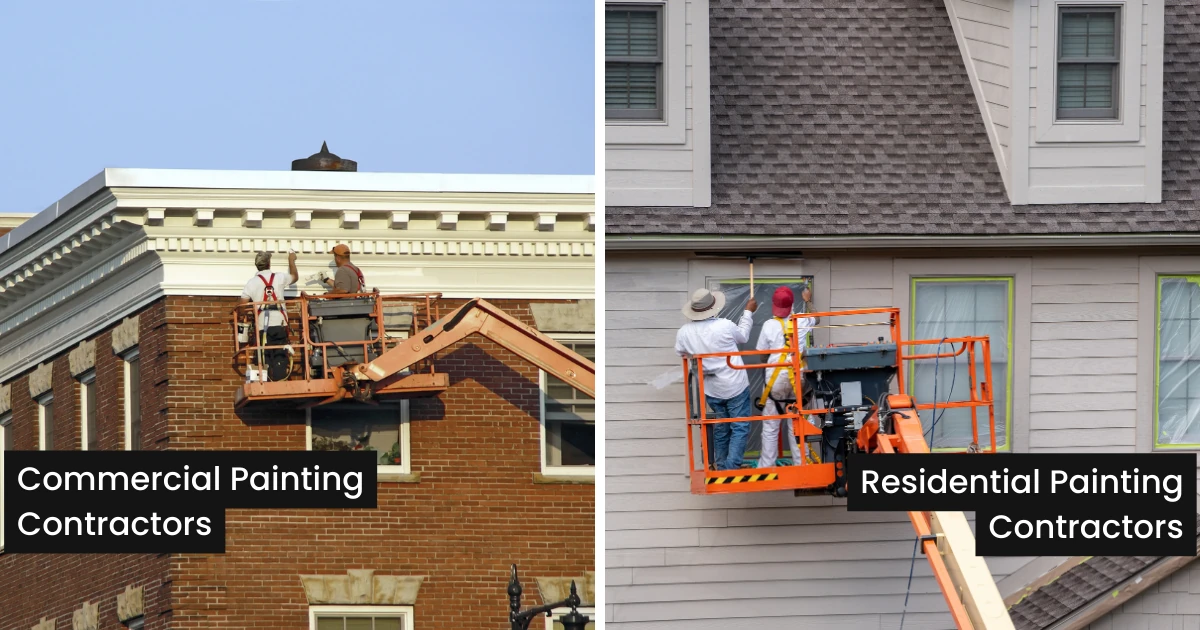If you’ve ever felt anxious about hiring a painter, you’re not alone. Many homeowners tell us they chose the first painting company they found, then struggled with surprise charges, weak prep work, or finishes that didn’t last.
In Seattle, where moisture and rain test every coat, paint quality and process matter just as much as price.
We want your next painting project to be the one that feels smooth from the moment work begins to the final walkthrough.
Below, we’re sharing the essential questions to ask painting contractor before hiring, the same questions we train our HELLO Painting crews to answer clearly, so you get a solid plan, transparent payment terms, and durable results.
Why choosing the right Seattle painting partner matters
A standout painting job isn’t just color on a wall, it’s planning, protection, and craftsmanship. When you interview a painting contractor, focus on four pillars:
- Credentials & coverage: licensing, general liability insurance, and workers compensation insurance
- People & process: trained crew, a hands-on project manager, and documented safety training
- Products & technique: premium materials, smart painting techniques, and climate-appropriate specs
- Paperwork & promise: a detailed estimate, a written contract, and a real warranty/guarantee
Get those right, and you’ll determine outcomes before the first brush touches your siding.
About the contractor and their credentials
1) Are you licensed and insured?
Always confirm a current Washington contractor license plus general liability insurance and workers compensation insurance. Liability helps if there’s property damage; workers’ comp protects employees if anyone gets hurt.
Ask for proof, the certificate of insurance, and cross check dates. Reputable contractors expect this.
Quick check: Look the company up with the Better Business Bureau. Complaint history and responses reveal how a reputable company treats customers when things get tough.
2) Who will be on the crew at my house?

Clarity is key. Ask how many painters will be onsite, who supervises (your project manager or foreman), and whether the team is in-house or subcontractors.
A professional contractor will introduce the crew, outline roles, and keep one clear point of contact so your questions get a fast answer.
3) Do you invest in training and safety?
Ask how the company trains. Our teams follow routine safety training for ladders, respirators, lead-safe protocols, masking, and containment.
Look for written procedures and daily “toolbox talks.” Ongoing training isn’t a perk; it’s essential protection, for your family and our workers.
4) Can you provide references and examples of past work?
Ask contractors to provide references from recent jobs and a portfolio of past work. Call those clients and ask about punctuality, communication, and cleanliness.
Review photos of interiors and exterior paint jobs. If you only get one example or someone dodges references, be concerned.
5) How long have you been in business?
Longevity matters in Seattle’s climate. We recommend at least two years in continuous operation.
Plenty of painting contractors and house painters can roll a wall; professional painters stick around because they solve problems before they start, and honor the warranty afterward.
About scope, schedule, and day-to-day flow
6) What’s the detailed timeline and plan?
Ask for a written plan with specific dates, milestones, and end-of-day expectations:
- Site arrival and setup
- Surface repairs and prep work
- Priming and finish schedule
- Daily cleanup and final walkthrough
Seattle weather is a factor. A seasoned painting contractor explains contingencies, communicates delays, and shows how much work happens each day so the project keeps momentum.
7) What prep steps are included (and where)?
Long-lasting results start before paint. In our estimates, we spell out prep work by surface:
- Wash and decontaminate (mildew, chalking, grime)
- Scrape, sand, feather edges; repair cracks and minor carpentry
- Prime with compatible products
- Mask thoroughly—no mess, no overspray
- Protect landscaping, hardscape, and interiors
If a bid glosses over prep work, the finish won’t achieve durable quality. Prep is not optional; it’s essential.
8) Which paint and materials do you recommend and why?

Ask about brands, sheens, coat counts, and specialty materials (primers, sealers, caulks). A strong answer connects product choice to surface type, exposure, maintenance goals, and expected service life.
We’ll also walk you through painting techniques: brush, roll, spray with back-roll, so you know exactly how we’ll achieve a uniform finish with premium tools.
Seattle tip: Cheaper paint can cost more over time. Lower-grade coatings may fade or fail early, leading to repeat labor and more money. We balance budget with performance to protect your investment.
9) Who supervises the work daily?
A committed project manager keeps sequences tight, coordinates crew and employees, and signs off on punch-list items. With clear ownership in the field, small issues never become big mistakes.
10) What safety precautions do you follow onsite?
Ask about fall protection, scaffold ties, ventilation, dust control, and chemical handling. We detail PPE standards and how we protect kids, pets, and belongings. Safety isn’t a talking point, it’s the operating system.
About the paperwork that protects you
11) May we see a detailed, written estimate?
A professional estimate itemizes costs for labor, materials, services, other materials (plastic, paper, tape), and specifies substrates, colors, sheens, and coat counts.
If you can’t picture the job from the details, ask us to revise until you can. Clear scope now avoids change orders later.
12) What are your payment terms and schedule?
Healthy payment terms typically include:
- A modest deposit to schedule
- A progress draw at a defined milestone
- Final pay after walkthrough and punch-list completion
Avoid oversized upfront requests. Fair structures respect cash flow for both company and homeowners, and keep accountability aligned with progress on the project.
13) Will we have a written contract before work begins?
Never start without a signed contract. It should capture the entire plan:
- Scope, surfaces, and exclusions
- Product specs and materials
- Timeline and daily site rules
- Change-order process
- Cleanup standards
- Warranty / guarantee language
Good contracts protect everyone and keep the project on track from the first ladder to the final sweep.
What warranty do you offer and what does it cover?
Ask what’s covered (labor, adhesion, fading), for how long, and how claims work. We provide written warranty terms so you’re never guessing. If there’s no written warranty, there’s no net, simple as that.
How to compare bids without getting overwhelmed
When proposals arrive, we suggest a five-point comparison to keep things fair and factual:
- Scope parity
- Confirm identical surfaces, coat counts, and materials. If one bid omits repairs or primer, it’s not cheaper, it’s different.
- Prep quality
- Weigh the prep work section heavily. Shortcuts here reduce finish quality and service life.
- People & management
- Dedicated project manager? In-house crew or rotating subcontractors? Reliable staffing minimizes disruption at your house.
- Documentation
- Strong estimate, clear payment terms, enforceable contract, and a real warranty, that’s the professional package.
- Reputation
- Verify references, scan the Business Bureau, and do a light background check (public reviews, portfolio). We’re happy to connect you with recent customers, you should never have to guess.
Real-world signals we look for (and deliver)
- Professional communication from first call to final sweep
- On-time arrival; organized tools; tidy site, no mess
- Proactive daily updates from your project manager
- Punch-list items handled quickly, without drama
- Results that look as crisp up close as they do from the curb
These habits separate a reputable contractor from a guy with a ladder.
Red flags that should give you pause
- No license or insurance proof, or reluctance to share proof
- Vague scope, unclear payment terms, cash-only demands
- Evasive about subcontractors, staffing, or safety
- Shrugging at training or safety training questions
- Minimal references or no verifiable past work
If the answers don’t add up, keep interviewing. Seattle has great contractors—you shouldn’t settle.
A printable checklist for your interviews
- ✅ License verified and current
- ✅ Insurance certificates provided (general liability + workers comp)
- ✅ Written estimate with itemized costs, brands, and specs
- ✅ Clear payment terms and milestone schedule
- ✅ Documented prep work steps and cleanup plan
- ✅ Assigned project manager and daily contact method
- ✅ Confirmed crew size; in-house vs. subcontractors
- ✅ Ongoing training / safety training (company trains)
- ✅ Written warranty / guarantee and claim process
- ✅ Recent references + photo past work provided
- ✅ Signed contract before work begins
Keep this handy while you meet contractors, it keeps the conversation efficient and the deliverables crystal clear.
Let’s talk about value (not just price)
Could a bid come in lower? Sure. But where did it get lower—materials, labor, or services like patching and priming? When a proposal lacks prep, primer, or coat counts, you’ll pay for it later with early failure and rework.
We focus on total value: fewer repaints, stronger weathering, and a finish that elevates your home’s look and longevity.
When a number seems too good to be true, ask yourself: is the scope thinner, or the result? That single point often determines whether the job feels like an upgrade or a redo.
Final thoughts and your next step
By leaning on these questions to ask painting contractor before hiring, you protect your home, your schedule, and your budget. You deserve professional guidance, clean documentation, and a finish you’re proud to show off.
When a painting contractor treats your project like our own, the experience stays easy and the results stay beautiful.
If you’re ready for a friendly walkthrough, a precise scope, and craftsmanship rooted in training and care, we’re here to help.
Here’s what we’ll do for you:
- Provide references you can call and a portfolio of past work to review
- Deliver a thorough written estimate with clear details (no surprises)
- Explain products, schedule, crew size, and exactly how much work happens each day
- Put everything in writing: scope, payment terms, cleanup, and warranty, before a single ladder goes up
Ready to start your project the right way?
Let’s build a plan together and complete your Seattle painting upgrade with confidence. Contact HELLO Painting for a friendly consult and a detailed proposal, no pressure, just clear answers and reliable services.
Quick glossary (because clarity helps)
- Painting contractor / contractor: The licensed business responsible for the job
- Painters / crew / workers: The trained field team performing the work
- Project manager: Your daily point of contact and on-site supervisor
- Estimate: The written scope, specs, schedule, and price
- Contract: The signed agreement covering all project details and protections
- Warranty / guarantee: The commitment we stand behind after completion
FAQs
1) What questions should I ask a painting contractor before hiring?
Ask about licensing and insurance (both general liability and workers’ compensation), years in business, recent references and past work, who will be on the crew, the detailed prep work and materials, job timeline, written estimate, payment terms, and the warranty/guarantee.
These questions to ask painting contractor before hiring help you compare scope, quality, and accountability, especially important when choosing a painting contractor in Seattle for interior or exterior paint jobs.
2) How do I verify a painting contractor’s license and insurance in Seattle?
Ask for the Washington State license number and a current certificate of insurance showing general liability and workers’ compensation. Then verify the license with the state’s contractor portal and cross-check the policy dates directly with the insurer.
For reputation signals, review recent references, scan the Better Business Bureau, and confirm a local address and phone. A reputable company will provide documentation immediately.
3) What should be included in a professional painting estimate?
A trustworthy estimate itemizes labor, materials, and other materials (masking, plastic), defines surfaces and square footage, lists painting techniques and number of coats, details prep work, includes the start/finish timeline, and states cleanup and disposal.
It also notes payment terms and any allowances. The more specific the details, the easier it is to compare contractor proposals apples-to-apples.
4) How much should a painting deposit be and what are fair payment terms?
For most residential projects, we recommend a modest deposit (often 10–30%) with progress draws tied to milestones and a final payment after walkthrough. Avoid paying over 50% up front.
Clear payment terms in the contract protect homeowners and ensure the project stays aligned with work completed, smart practice for any painting company or professional painters.
5) What prep work should a reputable painting contractor include?
Expect: washing/cleaning, scraping and sanding, patching and caulking, spot or full priming, masking and site protection, and a daily cleanup routine.
Thorough prep work is essential to paint adhesion and finish quality, it often determines the service life of the coating in Seattle’s damp climate. If a bid skimps on prep, the finish may fail early and cost more in labor later.
6) Do painting contractors use subcontractors or employees and does it matter?
Many contractors use both. What matters is oversight, training, and coverage. Ask who supervises the job (your project manager), how subcontractors are vetted, and whether everyone is covered by workers’ compensation insurance and general liability insurance.
In-house teams can offer consistent process; vetted subs can add capacity. Either model works when standards are documented and enforced.
7) How long do exterior paint jobs last in Seattle’s climate?
With premium materials, correct painting techniques, and disciplined prep work, exterior finishes in the Puget Sound region commonly last 7–10 years.
Exposure, substrate condition, and maintenance (annual rinse, caulk touch-ups) influence longevity. Choosing a painting contractor Seattle homeowners trust, one that specifies the right system for moisture, UV, and temperature swings, extends real-world performance.
8) What should a painting contract include to protect homeowners?
A solid contract should capture: full scope and exclusions, product/brand specs and sheens, coat counts, the job timeline, site rules and protection, change-order process, cleanup/disposal, payment terms, and written warranty coverage (what’s covered and for how long).
This documentation prevents misunderstandings and gives you enforceable recourse, critical when comparing reputable contractors vs. few companies that leave things vague.



.svg%20fill.svg)








